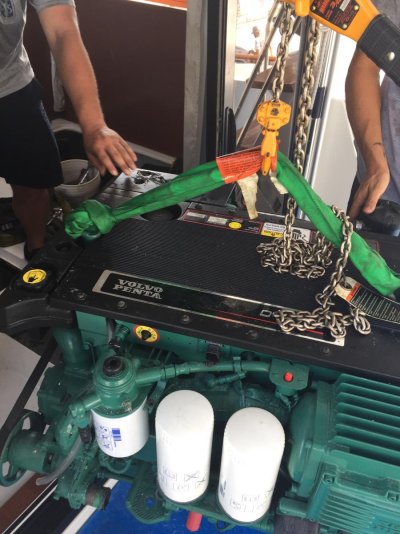Well, it's a matter of wanting the boat back in service. I wasn't trusting, very rigid requirements. But involving lawyers will turn a 90 day exercise into years. Most corporations will discuss, will argue, will debate, but the minute an attorney is brought into the equation they refer it to their legal department and those in operations will no longer be allowed to speak with you.
What you say may and can be true. And, yes, legal shitt in this case could become a PIA. However... how long will it be before the boat is back in service by Volvo replacing the twins? A year, I bet cha... if lucky. Then, boat has... another pair of "Volvo" engines. What if another, different problem arises that Volvo simply shrugs shoulders at. I could be wrong on how I would handle this, but, what ifs that represent downside risks... piss me off!
I'm not saying that at least at onset just letting Volvo do as they currently promise seems easiest way to go. But, watch out for the during and after effects. Doubtful that Volvo will be giving this twin engine replacement task to their highest qualified... and... they will probably want to save $$$ at every turn. By having them replace the engines boat owner needs to be vigilant the whole time to make sure things are done correctly and with best "Volvo" products available. That could eat up a lot of owner's time and effort. What a headache!!
If this is given to a reputable marine lawyer the owner can wait to get cash settlement with little to no personal time invested. Sure, boat will need to sit idle for long period; proving this mess is a headache no matter which way one turns.
I'm only giving the way I see it; and, would probably do it. BTW, I'm a scrappy SOB, when needed.
Most important thing is for owner to look clearly at all sides before diving in... then, upon decision - - > Go For It!
At very least I would speak with one or two marine lawyers for their input.
Last edited:



